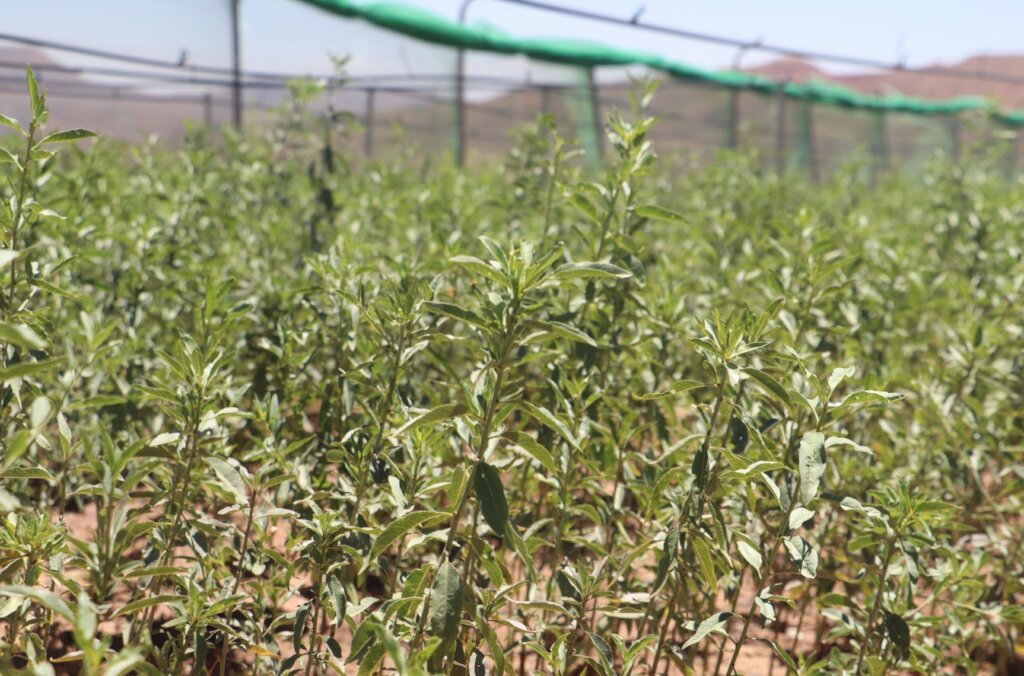By Cyrena Matingou | HAF-UVA Intern
In a time of uncertainty, from the conflict between Russia and Ukraine and the inevitable impacts of climate change, bolstering Morocco’s ability to produce its own food is crucial. As a result, participatory methods for managing agricultural production are a vested interest for the Moroccan government and economy.
Fortunately, these are goals that have been identified as priorities to the Moroccan government. For example, the Minister of Industry and Commerce stated that the agricultural sector plays a vital role in national "food security and sovereignty" and articulated the importance of decreasing the country’s reliance on imports. Focusing resources on small farmers and participatory methods can help reduce the need for imports and increase Morocco’s self-reliance.
Additionally, the government has created the Plan Maroc Vert (Green Morocco Plan), a program designed to increase the capacity of Morocco’s agriculture sector with the goals of sustainable development, increasing jobs, and reducing poverty. In the investor guide to agriculture in Morocco, the current landscape of agriculture is laid out and describes the important role the PMV plays. Participatory methods would be a critical way to achieve its goals, but the word “participatory” was only mentioned three times in the investor guide.
This indicates that there is abundant room for greater emphasis on the communities the government and outside investors plan to impower through resources and training. In this article I will explore ways to promote community management of farms that Moroccan small farmers could leverage, including Participatory Guarantee Systems and value-added products.
When considering management of agricultural products, organic certifications are relevant. Farmers must adhere to requirements determined by national organizations to receive their certifications, but this process can be expensive for small farmers. However, this designation is invaluable, helping farmers competitively sell their products on various markets.
Farmers across the world have begun to address the financial burden associated with the certification process and increase self-reliance by using Participatory Guarantee Systems (PGS). These systems developed in Brazil in 2004, dedicated to identifying the common features of alterative organic certification systems. PGS are quality assurance systems in which a community of farmers hold one another accountable to producing high-quality organic products.
This is done through visits to partnering farms to by stakeholders like other farmers, consumers, agricultural experts, and partnering non-profits. These systems inherently rely on all stakeholders to be engaged in the process of establishing and maintaining a standard for organic products.
Alternatively, farmers could receive grants from governmental agencies like Office National du Conseil Agricole (ONCA) to fund the certification process. The current issue with these grants is that they are not well publicized to rural farmers, or farmers may not have the time to apply for them on their own. Returning the power back to farmers through PGS systems places an emphasis on the local and increases accessibility to these certifications.
The second topic related to agricultural production is leveraging value-added products. Businesses can make a profit from these products by increasing the customer’s value of the good while keeping the cost of production low. Value-added products are typically produced via coordination or innovation. Coordination has a focus on the relationships between farms and market stakeholders while innovation changes the product itself or its production.
Associations and cooperatives around the country use this method of cooperation to increase the value of their products. There are cooperatives around Morocco where the one physical location sells products from cooperatives across the area, each of which specialized in different products like jewelry, shoes, and spices. Coordinating to have organizations selling the products of each cooperative likely increases their profits since they did not need to spend as much trying to attract customers to their various locations.
The second method is innovation. A critical part of value-added products is that they are innovative and stand out from other producers in the same market. Some example products from cooperatives we have visited include argan oil and argan products, rugs, jams, and leather goods. Knowing that these are common goods in other cooperatives, finding unique, alternative plants that can make new products would allow businesses to market their goods for higher prices.
Both the PGS and value-added products will not benefit farmers if they are not rooted in sustainability and participatory methods. From community meetings to drafting business plans, government agencies and investors who offer training and support small farmers must engage with their partners with these concepts at the forefront of all activities to increase the capabilities of small farmers and strengthen the Moroccan agricultural sector.
Project reports on GlobalGiving are posted directly to globalgiving.org by Project Leaders as they are completed, generally every 3-4 months. To protect the integrity of these documents, GlobalGiving does not alter them; therefore you may find some language or formatting issues.
If you donate to this project or have donated to this project, you can receive an email when this project posts a report. You can also subscribe for reports without donating.
Support this important cause by creating a personalized fundraising page.
Start a Fundraiser